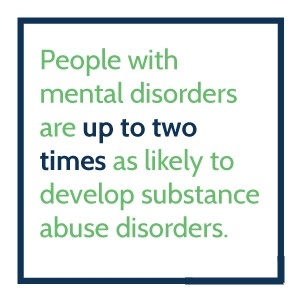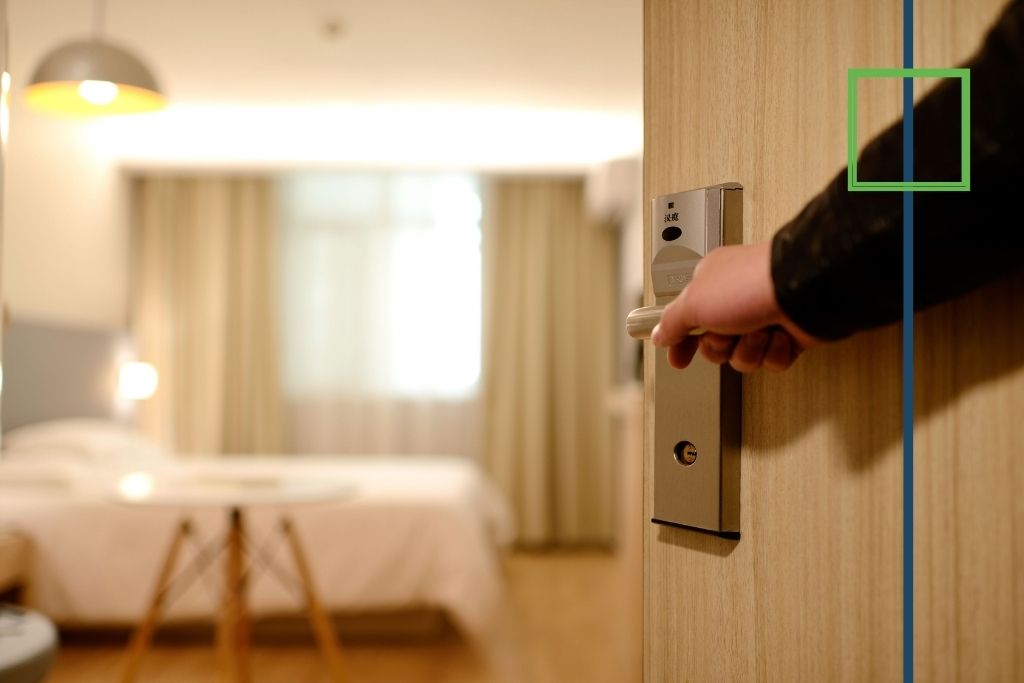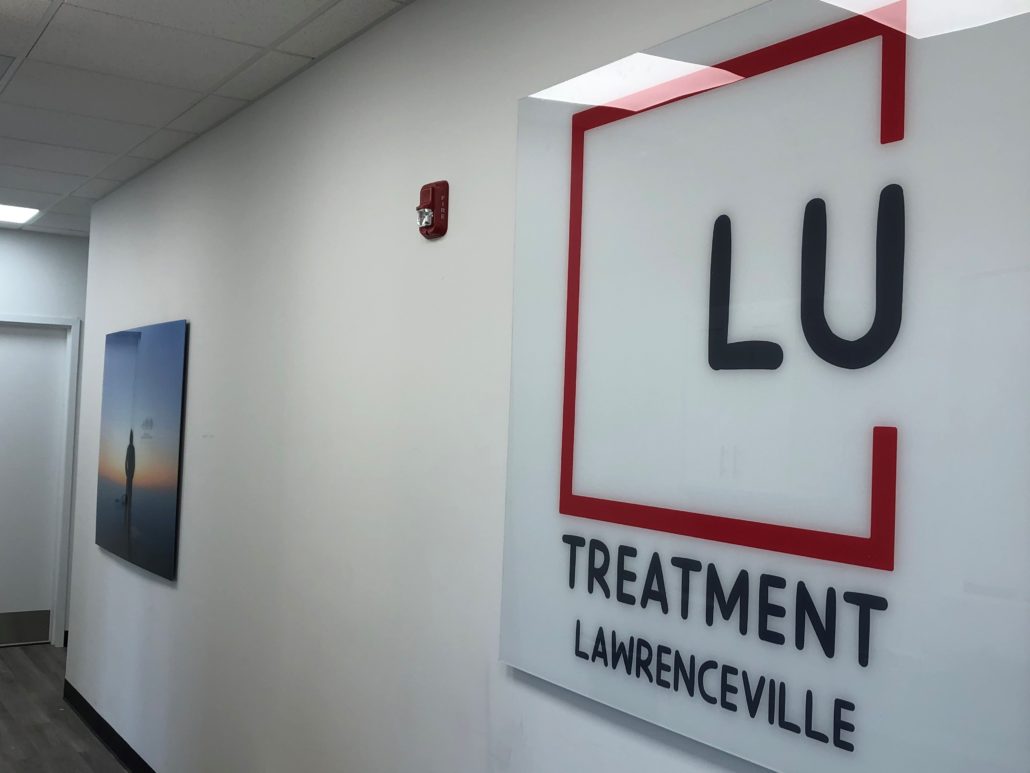What is BPD?
Your mental health professional may recommend one or more borderline personality disorder therapies, or BPD treatments, including psychotherapy, medication, or hospitalization.
Researchers are still trying to learn the exact cause of BPD and their corresponding best working BPD treatment modalities. Multiple factors may contribute to the disorder such as environmental factors, including genetics, and serotonin abnormalities. It develops during adolescence or early adulthood. You may be familiar already with BPD, but there are also other subtypes of this condition.
One such subtype is known as “quiet” BPD, which means that you direct your struggles more inward, so others do not notice. For this reason, quiet BPD tends to go undiagnosed or is misdiagnosed. The earlier you seek help, the better the outcome if Quiet BPD is difficult to diagnose and treat.

Get Your Life Back
Find Hope & Recovery. Get Safe Comfortable Detox, Addiction Rehab & Mental Health Dual Diagnosis High-Quality Care at the We Level Up Treatment Centers Network.
Hotline (877) 378-4154The typical presentation of BPD involves angry outbursts and obvious and outward self-destructiveness. However, those with quiet BPD have internalized emotional episodes, turning their anger inward.
Diagnosis
Below are the following criteria of all signs and symptoms of BPD according to the American Psychiatric Association’s Diagnostic and Statistical Manual of Mental Disorders (DSM). [1]
We must meet at least five of the official criteria from the DSM to be diagnosed with BPD.

- A pattern of unstable relationships
- You’re frantically trying to avoid real or imaginary abandonment
- Acting impulsively in at least two areas of your life in ways that can be self-damaging, for example, you may spend too much money or abuse substances
- History of suicidal or self-mutilating behavior
- Unstable self-image or self-identity
- Frequent mood swings. They usually last for a few hours but may last for a few days or more.
- Having difficulty in controlling your anger or you get severely angry without cause. You may feel angry all the time, display your anger frequently, or get in frequent physical fights.
- Severe and long-term feelings of emptiness
- Periods of stress-related paranoia or experience severe dissociation. Dissociation occurs when you feel like your mind is detached from your emotions or body
Signs & Symptoms of BPD
People with a borderline personality disorder may experience mood swings and display uncertainty about how they see themselves and their role in the world. As a result, their interests and values can change quickly.
Other signs or symptoms [1] may include:
- Efforts to avoid real or imagined abandonment, such as rapidly initiating intimate (physical or emotional) relationships or cutting off communication with someone in anticipation of being abandoned
- A pattern of intense and unstable relationships with family, friends, and loved ones, often swinging from extreme closeness and love (idealization) to extreme dislike or anger (devaluation)
- Distorted and unstable self-image or sense of self
- Impulsive and often dangerous behaviors, such as spending sprees, unsafe sex, substance abuse, reckless driving, and binge eating. Please note: If these behaviors occur primarily during a period of elevated mood or energy, they may be signs of a mood disorder—not borderline personality disorder
- Self-harming behavior, such as cutting
- Recurring thoughts of suicidal behaviors or threats
- Intense and highly changeable moods, with each episode lasting from a few hours to a few days
- Chronic feelings of emptiness
- Inappropriate, intense anger or problems controlling anger
- Difficulty trusting, which is sometimes accompanied by irrational fear of other people’s intentions
- Feelings of dissociation, such as feeling cut off from oneself, seeing oneself from outside one’s body, or feelings of unreality
Not everyone with borderline personality disorder experiences every symptom. Some individuals experience only a few symptoms, while others have many. Symptoms can be triggered by seemingly ordinary events.
Get Help. Get Better. Get Your Life Back.
Searching for Accredited Drug & Alcohol Rehab Centers Near You? Or Mental Health Support?
Even if you have failed previously, relapsed, or are in a difficult crisis, we stand ready to support you. Our trusted behavioral health specialists will not give up on you. Call us when you feel ready or want someone to speak to about therapy alternatives to change your life. Even if we cannot assist you, we will lead you wherever you can get support. There is no obligation. Call our hotline today.
FREE Addiction Hotline – Call 24/7“High-functioning” BPD or Quiet BPD
A lot of people with this type of mental illness are not getting the right borderline personality disorder or BPD treatment plans. The sufferer can still go to work, school, or function with no one’s around that knows what your mind is going through deep inside. You may direct significant feelings toward yourself only without letting others know or see them. Such intense emotions may include anger or rage, anxiety, mood swings, severe self-doubt, self-blame and guilt, fear of abandonment or rejection, and emotional attachments or obsessions.
Symptoms of Quiet BPD
This form of borderline personality may be difficult to identify at first and may require BPD treatment. The most notable symptoms of quiet BPD include:

- Deep-seated fear of rejection
- Social anxiety and self-isolation
- Extremely poor self-esteem
- Blaming yourself whenever there is a conflict
- Avoiding talking to others who have upset you and cutting them off instead
- Feeling detached from the world and sometimes feeling like you are in a dream
- Fear of being alone, yet pushing people away at the same time
- Inability to build connections with others
- Mood swings that can last for as little as a few hours, or up to a few days, but no one else can see them
- Suppressing feelings of anger or denying that you feel angry
- Withdrawing when you are upset
- Persistent feelings of guilt and shame
- Having a “thin skin” and taking things personally
- Feeling like you are a burden to others
- Feelings of numbness or emptiness
- People-pleasing, even at a cost to yourself
- Self-harm or suicidal thoughts
Note that some people with quiet BPD may experience just a few of these symptoms, while others might be experiencing more.

Individuals at risk for quiet BPD
Certain risk factors have also been shown to influence the development of quiet borderline personality disorder. These may include a history of:
- Eating disorders
- Substance abuse
- Abandonment or neglect
- Bipolar disorder
- Anxiety
- Depression
BPD Vs Bipolar
Getting the right diagnosis often isn’t easy for psychiatric conditions. In a snapshot, both BPD and bipolar can look similar—both can present with impulsive behavior, intense emotions, and suicidal thinking. But this snapshot is not the best way to tell them apart.
Classic Bipolar Disorder Type 1 is easier to differentiate from BPD than Bipolar 2. True manic symptoms (often with hallucinations) are the hallmark of Type 1 and these symptoms are not seen in the same way in BPD. Bipolar Type 2 is a more challenging diagnosis to differentiate from BPD because the classic manic episode is absent. So, on the surface, it can appear more like BPD. [2]
Diagnosing a mental illness isn’t like diagnosing some physical illnesses—it takes a lot of observation and understanding to find the right diagnosis. If your diagnosis doesn’t feel right or isn’t clear, it’s best to talk to your clinician. Ask about your diagnosis and treatment plan and be engaged in the diagnostic process. If you and your practitioner aren’t sure, ask for a second opinion. It’s okay not to be sure, and it’s smart to keep learning.
Both BPD and bipolar have good treatment options, but they are very different options, so putting time into getting a correct diagnosis is essential. These are serious health conditions that need individualized support and care in order to optimize recovery.
BPD Treatment
Following your doctor’s prescribed treatment plan is extremely important as you may face lifelong challenges associated with your BPD treatment program. A proper borderline personality treatment can reduce the severity of your symptoms. And help you lead a fulfilling and safe life. If a psychiatrist recommends medications, this is to help ease some of your symptoms. However, you should not rely on medications alone, because they do not necessarily address the underlying causes of your BPD. Medications often work best in conjunction with proper psychotherapy.
Psychotherapy is the main treatment for borderline personality disorder. There are three types of psychotherapy and one of these may be recommended to you: cognitive behavioral therapy (CBT), dialectical behavior therapy (DBT), and schema-focused therapy.
Medication can relieve symptoms but does not cure BPD. Your doctor may prescribe medication in addition to psychotherapy treatment. They may prescribe: antidepressants to treat depression, antipsychotics to treat aggressive symptoms, and antianxiety medications to treat anxiety.
Alternative BPD treatment therapy may include Omega-3 fatty acids. These may relieve symptoms of depression and aggression in people who have borderline personality disorder. However, more research is needed to confirm the benefits of omega-3 fatty acids.

First-class Facilities & Amenities
World-class High-Quality Addiction & Mental Health Rehabilitation Treatment
Rehab Centers TourRenowned Addiction Centers. Serene Private Facilities. Inpatient rehab programs vary.
Addiction Helpline (877) 378-4154Proven recovery success experience, backed by a Team w/ History of:
15+
Years of Unified Experience
100s
5-Star Reviews Across Our Centers
10K
Recovery Success Stories Across Our Network
- Low Patient to Therapist Ratio
- Onsite Medical Detox Center
- Comprehensive Dual-Diagnosis Treatment
- Complimentary Family & Alumni Programs
- Coaching, Recovery & Personal Development Events
BPD Treatment Medication
Individuals with borderline personality disorder (BPD) suffer from marked affective disturbance, an unstable sense of self, difficulty in interpersonal relationships, and heightened impulsivity, leading to high rates of self-harm and suicide. Patients are often refractory to treatment and are at high risk for acute or dangerous presentations, with a serious impact on mental health services.
There has been much debate on the effectiveness of pharmacotherapy in treating different facets of the psychopathology of the disorder. Several guidelines recommend the use of antidepressant agents, mood stabilizers for affective dysregulation and impulsive-behavioral dyscontrol, and antipsychotics for cognitive-perceptual symptoms. [3]
BPD Inpatient Treatment
Most inpatient hospitalizations occur due to concern that the patient may be at risk of harming herself or someone else, and the patient is discharged once that risk has passed.
In the past, inpatient treatment for BPD may have lasted months or even years, but now inpatient treatment is generally much shorter, depending on the needs of the individual involved. If you think you may need to be admitted to an inpatient treatment program (or you believe a loved one may need this type of program), contact us for a personalized treatment plan for BPD and dual diagnosis.
BPD Therapies
Psychotherapy, or talk therapy, is the main treatment for borderline personality disorder (BPD). Several types of therapy may benefit people with BPD, and each type takes a different approach.
Psychotherapy
Psychotherapy is considered the primary treatment for borderline personality disorder (BPD).
Comprehensive, long-term psychotherapy can be a useful form of treatment for those with BPD. However, less intensive and less costly forms of treatment need to be developed. In addition, psychosocial treatments that are aimed at the quieter but psychosocially detrimental symptoms of BPD are needed.
Dialectical Behavior Therapy (DBT)
Dialectical behavior therapy (DBT) is a structured outpatient treatment developed by Dr Marsha Linehan for the treatment of borderline personality disorder (BPD). Dialectical behavior therapy is based on cognitive-behavioral principles and is currently the only empirically supported treatment for BPD.
Randomized controlled trials have shown the efficacy of DBT not only in BPD but also in other psychiatric disorders, such as substance use disorders, mood disorders, posttraumatic stress disorder, and eating disorders.
Traditional DBT is structured into 4 components, including skills training group, individual psychotherapy, telephone consultation, and therapist consultation team. These components work together to teach behavioral skills that target common symptoms of BPD, including an unstable sense of self, chaotic relationships, fear of abandonment, emotional lability, and impulsivity such as self-injurious behaviors. [4]
World-class, Accredited, 5-Star Reviewed, Effective Addiction & Mental Health Programs. Complete Behavioral Health Inpatient Rehab, Detox plus Co-occuring Disorders Therapy.
CALL (877) 378-4154End the Addiction Pain. End the Emotional Rollercoaster. Get Your Life Back. Start Drug, Alcohol & Dual Diagnosis Mental Health Treatment Now. Get Free No-obligation Guidance by Substance Abuse Specialists Who Understand Addiction & Mental Health Recovery & Know How to Help.
Therapeutic Communities (TCs)
Therapeutic community (TC) treatment is a potentially effective psychosocial intervention for reducing substance use, criminality, unemployment, and other psychosocial problems experienced by addicted individuals1. Several large-scale studies have found significant and sustained improvements following successful completion of a TC typically after 6–12 months of residential treatment.
Art Therapies
Art therapy is widely used and effective in the treatment of patients diagnosed with Personality Disorders (PDs). Current psychotherapeutic approaches may benefit from this additional therapy to improve their efficacy.
Art therapy is an experiential form of treatment that makes use of art media, creative processes, and the resulting artwork to improve a patient’s symptomatic functioning while enhancing their well-being. Art therapy is aimed at artistic self-expression and reflection of problematic feelings or themes and is guided by an art therapist.
BPD Treatment Near Me
Psychodynamic therapy, dialectical behavior therapy (DBT), or psychiatric medications are among the first lines of quiet borderline personality disorder treatments. DBT teaches mindfulness strategies, distress tolerance, emotional regulation, and interpersonal effectiveness. A proper and guided practice can help reduce self-destructive thoughts and actions. A psychotherapist administers DBT. [5]
In fact, people with a personality disorder including borderline personality are much more likely to develop a substance abuse disorder. For instance, you may have co-occurring disorders if you are struggling to complete drug rehab. We Level Up Dual Diagnosis Rehab treatment teams apply best practices & evidence-based treatment for client multi disorders getting to the underlying problems behind one’s addiction.

At We Level Up NJ Treatment Center, you will find world-class care with round-the-clock medical professionals available to help with primary addiction disorders plus secondary BPD Treatment and recovery therapy. Working as an integrated team providing BPD treatment with a Dual Diagnosis program for primary substance abuse recovery treatment. Make this your opportunity to reclaim your life. Call today to speak with one of our treatment specialists. Our counselors know what you are going through and will answer any of your questions.
Your call is private and confidential and there is never any obligation.
Experience Transformative Recovery at the We Level Up Treatment Center.
See our authentic success stories. Get inspired. Get the help you deserve.



Start a New Life
Begin with a free call to an addiction & behavioral health treatment advisor. Learn more about our dual-diagnosis programs. The We Level Up treatment center network delivers various recovery programs at each treatment facility. Call to learn more.
- Personalized Care
- Caring Accountable Staff
- World-class Amenities
- Licensed & Accredited
- Renowned w/ 5-Star Reviews
We’ll Call You
Sources:
[1] https://www.psychiatry.org/psychiatrists/practice/dsm – American Psychiatric Association’s Diagnostic and Statistical Manual of Mental Disorders (DSM)
[2] Borderline Personality Disorder – National Institutes of Health
Borderline Personality Disorder and Bipolar Disorder: What’s the Difference? – https://www.nami.org/Blogs/NAMI-Blog/June-2017/Borderline-Personality-Disorder-and-Bipolar-Disord
[3] Borderline Personality Disorder – National Institutes of Health
[4] Borderline personality disorder: current drug treatments and future prospects – National Center for Biotechnology Information
[5] Dialectical behavior therapy as treatment for borderline personality disorder – National Center for Biotechnology Information
We Level Up – Mental Health » Borderline Personality Treatment
